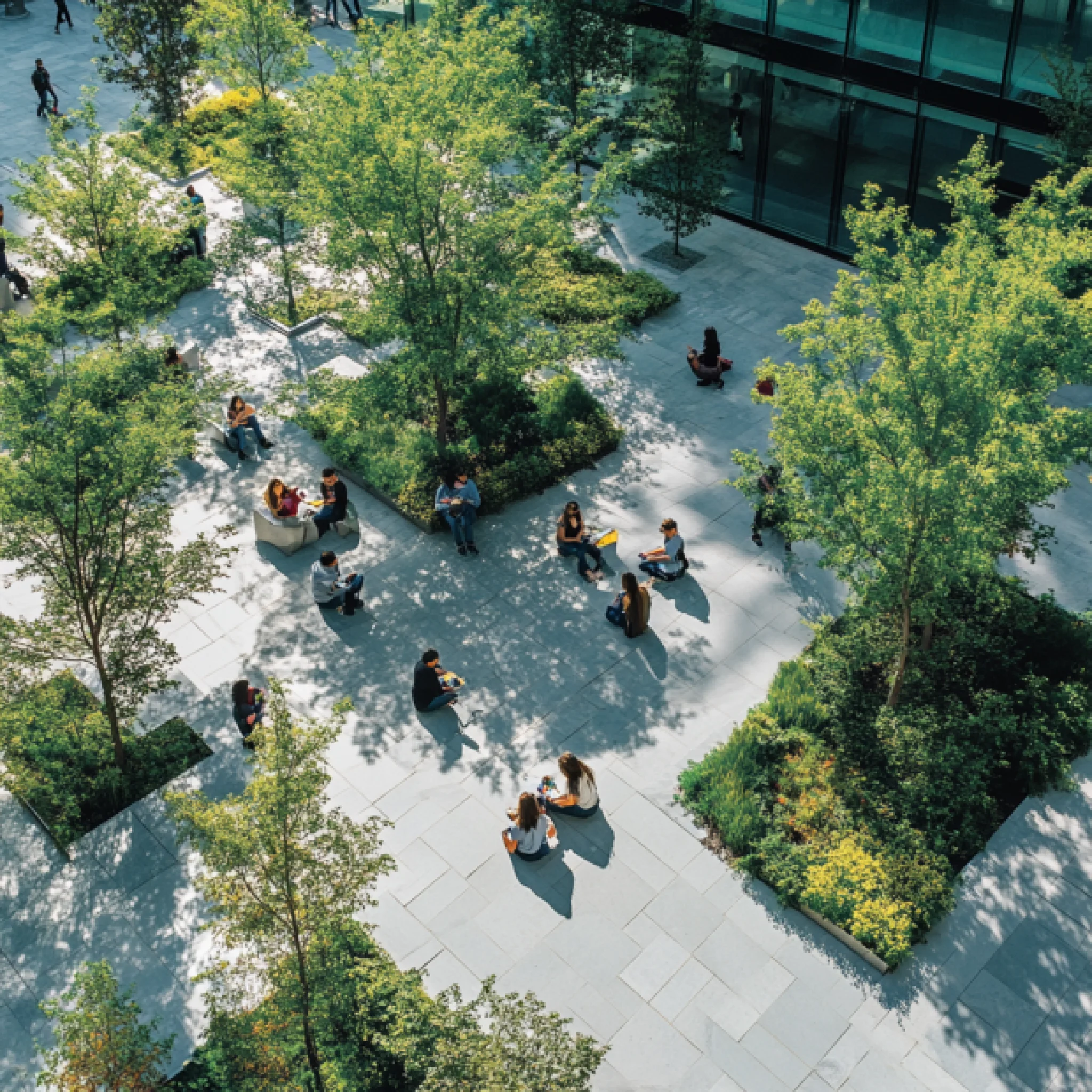Artificial Intelligence for Transdisciplinary Education
Artificial Intelligence (AI) is changing the landscape of teaching and learning within higher education, enabling teachers and institutions to reimagine the possibilities of what can be taught and how to teach it. Within transdisciplinary education, we believe AI – in its different forms – will extend and transform students’ capabilities to connect across disciplines and non-disciplines, create knowledge, and make impact.
Common Core is committed to nurturing students’ capacities to play and negotiate with, and apply AI to their academic, professional, and personal lives. Alongside the introduction of the fifth Area of Inquiry into AI for our formal curriculum in 2025/26 academic year, we have also expanded our co-curricular offerings. Rather than prohibiting the use of AI, we encourage teachers to think more expansively about how AI can be resourcefully incorporated into learning activities and assessments to develop competencies and values for students’ future lives.
The page presents case studies and experiments that HKU Common Core has been playing with, which we hope can inspire and provoke you to thoughtfully incorporate AI into your T&L practices and enhance the learning experiences of students.

AI Resources
Guidebook on the use of Generative AI for Teaching and Learning by Dr Jack Tsao and Dr Alice SM Wong.
Teachers may also want to refer to TALIC’s Guidance on the Ethical Use of AI and guidance provided under the Teaching Resources section in Assessments and Feedback.
AI Projects
Generative AI Hackathon for Social Good and United Nations Sustainable Development Goals (SDGs)
Since 2023, we have leveraged the hackathon methodology as a pedagogy in hosting a 1-month extended competitive hackathon. Undergraduates and postgraduates formed interdisciplinary and mixed teams to prototype a socially oriented response/ solution using Generative AI. The event is co-organised with the other seven public Hong Kong universities and supported by the Hong Kong University Grants Committee’s Fund for Information Technology Education (FITE) grant. For more information, visit www.hack4sdg.com.
Urban Future and the Future of “Made in Hong Kong”
These futures projects with Arup’s Foresight Team explores the city as network of assemblages through the STEEP framework to critically trace the social, technological, economic, environmental, and the political impacting Hong Kong. The project leverages futures methodologies assisted by AI to undertake visioning, backcasting, scenario planning, and radical storytelling to speculate on how ecosystems in Hong Kong can develop to sustain alternate industries, especially for the city’s reindustrialisation and manufacturing. As part of the research, students visited Mills Farbrica (Part of the Nan Fung Group) and engaged with the history, art and innovations within the textiles industry as a case study of Hong Kong’s industrialisation. For more information, refer to: Urban Futures Hong Kong and The Future of ‘Made in Hong Kong’
Creative Writing in the Age of Big Data
The project as a collaboration with Department of English at the Chinese University of Hong Kong (CUHK) explores students’ use of GenAI LLMs and image generation applications in the production of creative graphic fiction and poetry. The research observed how students could lean into AI as a co-author and use AI as mediating object that shifts the role of teachers as experts to facilitators/ curators. For more information, see: Creative Fiction in the Age of Big Data
Generative AI for Multilingual Medical Communication
HKU students partnered with peers from Australian universities to explore the application of Generative AI in multilingual medical communication. The project focused on creating translated medical materials about neurofibromatosis for school settings, specifically targeting ethnic Chinese populations (Mandarin and Cantonese) and other minority groups in Australia (Indonesian and Russian). Collaborating with the Children’s Tumour Foundation of Australia, the team adapted and produced resources such as fact sheets and communications for parents, teachers, doctors, and students. They investigated how Generative AI could be leveraged to produce affordable, trustworthy, and culturally relevant medical communications by customizing AI chatbots and integrating translation and literacy tools like SHeLL and Hemingway. The initiative provided students with insights into AI literacy skills required in the health sector while achieving real-world social impact. The collaboration included Dr. Danielle Heinrichs from Griffith University and Dr. Michael Camit from UNSW/UTS and the New South Wales Health Literacy Unit. Further information can be found on: Generative AI for Medical Communication
Artificial Intelligence for Reimagining Learning/ Learning and Future Aspirations
These student partnership projects collaborate with students-as-researchers to understand how AI is reshaping higher education their university teaching and learning and students’ aspirations for the future. The student researchers talk with their peers and teachers and gain experience in conducting research. For more information, visit the projects : Learning with AI and Artificial Intelligence, Learning, and Aspirations

